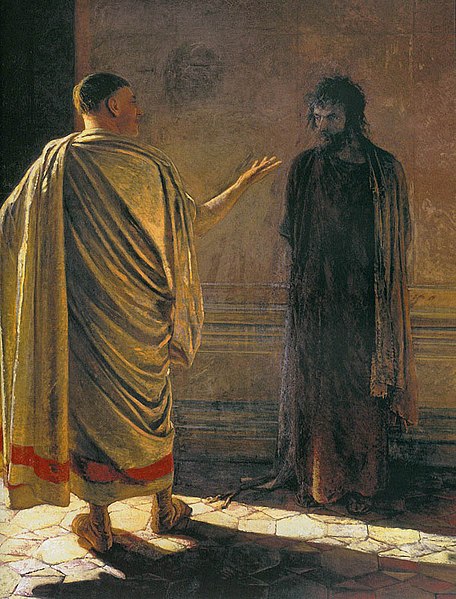In the study of the human mind, intellect is the ability of the human mind to reach correct conclusions about what is true and what is false in reality; and includes capacities such as reasoning, conceiving, judging, and relating. Translated from the Ancient Greek philosophical concept nous, intellect derived from the Latin intelligere, from which the term intelligence in the French and English languages is also derived. The discussion of intellect can be divided into two areas that concern the relation between intelligence and intellect.In classical philosophy and in medieval philosophy the intellect (nous) is the subject of the question: How do people know things? In Late Antiquity and in the Middle Ages, the intellect was the conceptual means of reconciling religious monotheism with philosophical or scientific study of Nature. This reconciliation made the intellect the conduit between the individual human soul, and the divine intellect of the cosmos. Aristotle first developed this with his distinction between the passive intellect and active intellect.In psychology and in neuroscience, the controversial Theory of Multiple Intelligences applies the terms intelligence (emotion) and intellect (mind) to describe how people understand the world and reality.

The intellect comprises the rational and the logical aspects of the human mind.
The Structure of Intellect (SI) model organizes intellectual functions in three dimensions: (i) Operations, (ii) Contents, and (iii) Products. (Joy Paul Guilford, 1955)
Truth or verity is the property of being in accord with fact or reality. In everyday language, truth is typically ascribed to things that aim to represent reality or otherwise correspond to it, such as beliefs, propositions, and declarative sentences.
Walter Seymour Allward's Veritas (Truth) outside Supreme Court of Canada, Ottawa, Ontario Canada
What is Truth? by Nikolai Ge, depicting John 18:38, in which Pilate asks Christ "What is truth?"




